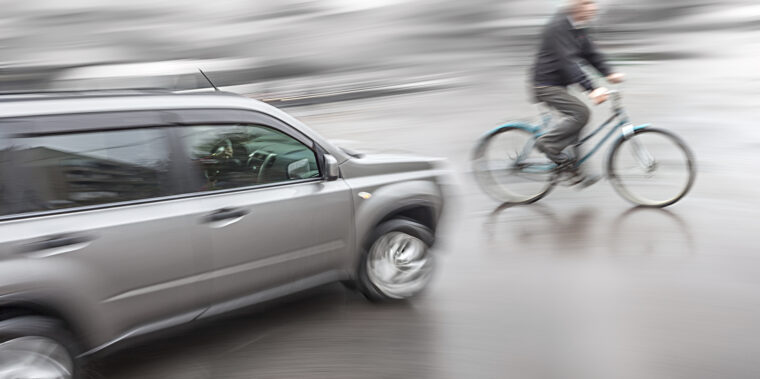Sean O’Rourke | August 6, 2025 | Car Accidents

Adaptive cruise control (ACC) helps you maintain a set speed and adjusts that speed to match traffic flow. It uses built-in sensors to track the car ahead and keeps a safe distance without your input. Many drivers now rely on this system during highway travel.
With more vehicles equipped with ACC, you need to know how it works, how it fails, and what happens when manufacturers put unsafe systems on the road.
What Is Adaptive Cruise Control (ACC)?
Adaptive cruise control is a driver-assistance feature designed to maintain a set speed and adjust that speed automatically to match surrounding traffic. Using radar sensors—typically located in the front bumper or grille—the system tracks the distance and speed of the car ahead, slowing or accelerating your vehicle to maintain a safe following distance. Many drivers now rely on ACC during highway travel for convenience and comfort.
While ACC can reduce fatigue and improve flow, it’s far from foolproof. Understanding how it works—and when it doesn’t—is critical to staying safe.
How ACC Works—and Where It Falls Short
Although ACC can improve driving ease, you remain the primary operator. The system responds to other vehicles by making speed adjustments or issuing alerts, but it’s not equipped to handle all road conditions or sudden changes in traffic.
Below are some common scenarios where ACC may struggle or fail altogether:
- Lane changes or merging traffic: Cars that cut in too quickly may not be detected in time.
- Small or non-standard objects: Motorcycles, bicycles, or roadside debris may confuse the system.
- Complex road layouts: Lane splits, construction zones, or sharp curves can disrupt radar function.
Because of these limitations, ACC errors can lead to serious car accidents. While liability often falls on the driver, in rare cases, a malfunctioning system may raise questions about manufacturer responsibility.
When Adaptive Cruise Control Fails
ACC systems are particularly vulnerable in poor weather or low-visibility conditions. Snow, glare, fog, or ice can interfere with the radar, causing false readings or no readings at all. If the system doesn’t recognize a hazard quickly enough, it may delay braking, leaving you with little time to react.
Common failure scenarios include:
- Following too closely before the system registers a slowdown
- Inability to respond to pedestrians, construction barriers, or flashing signals
- Misjudging traffic patterns in urban environments or stop-and-go conditions
Despite frequent updates and improvements, ACC still can’t process every real-world variable. When the system miscalculates or fails, the result can be a high-speed crash, and you’ll be the one dealing with the consequences.
Assistive, Not Autonomous
Adaptive cruise control is a helpful tool, but it doesn’t replace driver awareness or judgment. If you rely on it too heavily, especially in unpredictable conditions, the system’s limitations can put you at serious risk. When ACC fails to detect danger, drivers—not the software—are often left to pay the price in injuries, property damage, and potential legal claims.
Always stay alert behind the wheel. The technology may assist you, but it can’t protect you from every threat on the road.
Schedule a Consultation With a Personal Injury Lawyer at Simon & O’Rourke Car Accident & Personal Injury Lawyers
If adaptive cruise control contributed to a crash, it’s important to speak with a personal injury lawyer. Cases involving advanced vehicle systems, software errors, or product defects can be complex. A knowledgeable attorney can gather evidence, analyze sensor performance, and determine who may be responsible.
Even if you’re unsure whether the system played a role, an attorney can work with experts to retrieve and interpret sensor data. If you’ve suffered serious injuries or financial losses, a legal claim may help you recover compensation.
For more information, please get in touch with the Houston personal injury attorneys at Simon & O’Rourke Car Accident & Personal Injury Lawyers at our nearest location to schedule a free consultation today.
Simon & O’Rourke Car Accident & Personal Injury Lawyers
440 Louisiana St Suite 1115, Houston, TX 77002
(281) 667-4081
About The Author

Sean O’Rourke earned his law degree from Southern Methodist University School of Law and is licensed to practice in Texas. He frequently assists clients with their legal needs in Houston, with a focus on personal injury cases, especially those involving motor vehicle accidents (such as cars, commercial trucks, 18-wheelers, & motorcycles). Click here to view some of the amazing case results that Sean has successfully handled.
Location: Houston, TX
